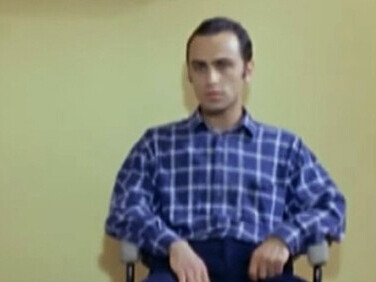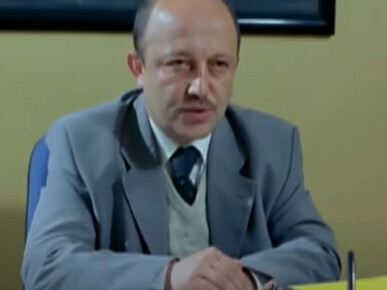Cinema is not always used to serve society for the purpose of a certain political ground; sometimes it is used to rehabilitate society from certain angles and to point a finger at a certain problem. The two films we will analyze in this article, Zeki Demirkubuz's Fate and Yeşim Ustaoğlu's Journey to the Sun, point exactly to the identity problem in our country. In my article, I will write about the period in which these two films were written, the analysis of the films, the characters and their representations, as well as a concluding analysis with examples that I think are influenced by the world. Both of these films were shot in recent years; Ustaoğlu started shooting the film around 1997 and released it in 1999, while Demirkubuz released the film in 2001.
One of the reasons why I chose these two films is that they were both made in a short period, and more importantly, right after the 28th of February. This period is very important for Turkish society because with the February 28th decisions, the existing regime of Necmettin Erbakan was overthrown by the military in what can be called a postmodern coup d'état on the grounds that it threatened secularism.
This further polarized the conservative-secular wing of society. In both the movie Fate and Journey to the Sun, there is a common similarity between the two protagonists: both characters are contradictory to the identity that is considered abnormal for society. While Musa is a character who interprets life from a fatalistic, or rather “fateful,” point of view and cannot even find a reason to be sad about his mother's death, Mehmet of Journey to the Sun is troubled by his physical appearance, more precisely because of his dark skin.
In a deeper reading, both characters are anomalies for society, different from what they should be, perhaps wrong. Even though both films talk about identity representation and the system, they take the phenomena of “them” and “us” from different perspectives; more precisely, the places where they fight or try to find a solution are different. To analyze Fate first, let's look at the narrative of a short film. Musa's mother dies, but he doesn't notice. His friends warn him, then he checks, but he doesn't get upset. His colleague Yavuz invites him to the cinema; he first accepts but then gives up.
Then he goes to the cinema again. Another colleague, Sinem, comes, and they go home after the cinema. Just as they are making love, Sinem wants to stop, and Musa says, “It doesn't matter”. Sinem has an affair with Naim, who is married with children, but then she asks Musa if he wants to get married, and he says, “It doesn't matter.” He comes home and catches Sinem with Naim and does nothing.
He goes to Naim's house to teach Naim's son how to use a computer, but that day, Naim's wife and children are killed. Musa gets the death penalty and goes to jail, Naim confesses his crime, and the prosecutor says, You will get out, and says, “It doesn't matter.” Musa comes home, and Sinem is at home, but Naim's child is also at home, but “it doesn't matter”. The crucial sentence of the movie lies in this word. It doesn't matter for Musa; Musa is aware of the “fate” of the system. All around her, people criticized her for her reckless attitude, but did it really matter to others?
Sinem blatantly said, “It doesn't matter” that a married man cheated on his wife with her. Naim cheated on his wife; not only did he cheat on his wife, but he also killed his children and said, “It doesn't matter,” for a very long time. In fact, Musa was aware of this capitalist system; these people had no identity, they were not real, and things didn't matter to them either, but they continued.
As for the journey to the sun, Mehmet was from Tire, but no one could believe it because his skin color was “swarthy.” After a national match, hooligans damage the car of a Turkish citizen, while Mehmet tries to prevent it, and when the fans attack him, the Kurdish Bezan helps him. The story here shows us how much the concept of identity is related to the system. Fans celebrating the national game damage public property. Mehmet, a “swarthy” man from Tyre, tries to stop them but is unable to do so and is saved by Berzan, a Kurd.
Mehmet is arrested without charge; police officers ask him where his father is from because he is “swarthy,” and they wonder where he is originally from because he looks more like a Kurd. Because Tire people are blonde, not “swarthy” like Mehmet. In Matthew Kassovitz's La Haine, we see a scene with a similar concept where the police in the ghetto treat people very harshly, but when the trio goes to Paris, they encounter polite police officers.
It doesn't matter what you really are; it matters what the current conjuncture is and where you are. The second half of the movie turns into a road story as Mehmet takes Berzan's body back to Zorduç, the land of his birth, but this journey is also an inner journey in which Mehmet accepts himself, or rather, the existing system. In two important scenes, we see Mehmet dyeing his hair blonde like the people of Tire and telling the soldier from Tire he meets on the train that he is from Zorduç. We may see a contradiction here, but, Mehmet and director Yeşim Ustağlu show us, the audience, that identity is something that is determined in the minds of the people, and that for a true freedom and classless society, everyone should be able to be both Zorduçian and Tirean.
As for my criticisms of the films, Demirkubuz shows us an adaptation of Albert Camus' The Stranger, but Meursault's philosophical and motivational approach to life is very different from that of Moses. In Journey to the Sun, the performance of amateur and young actors sometimes makes it difficult for us to internalize some parts of the film.















